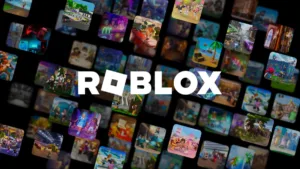The metaverse is high up on the plans of most global marketers, but there are concerns that consumers don’t have a full understanding of what the metaverse is and will be, according to research from Sitecore.
Released at Sitecore Symposium 2022, the ‘Perceptions of the Metaverse’ report – which surveyed almost 700 global marketers and 2,001 consumers – found that 91% of marketers plan to invest a portion of their marketing budgets in the metaverse in the next five years, with 81% expecting widespread adoption within that timeframe.
As many as half of brands intend to dedicate more than 10% of their budget to the metaverse next year, and 81% are creating new roles within their teams focused on the metaverse.
40% of marketers already claim to have a compelling metaverse use case that could help drive ROI in their businesses. However, when asked about their preferred metaverse provider, 22% pointed to Meta, and 9% to Minecraft, while Fortnite, Sandbox, Decentraland, and Roblox all sat on 6%, proving that no player yet has a completely dominant foothold. Furthermore, 45% of marketers have no preference for where they build metaverse projects.
Despite a desire to invest in the metaverse, 65% of marketers don’t believe that consumers fully understand the concept of the metaverse, and only 30% of consumers class themselves as ‘metaverse enthusiasts’. As a result, 78% are planning to work harder to educate consumers about the metaverse.
Positively, for the metaverse, the cost-of-living crisis presents an opportunity to engage consumers with alternative ways of shopping. 58% of consumers are more inclined to stay at home and purchase through the metaverse if it means spending less on travel. 48% would also appreciate the ability to shop with friends or a community; 44% would like access to new products and exclusive releases before their real-world launch; 28% would engage with a metaverse influencer before making purchases; and 14% would like to see cryptocurrency payments in the metaverse.
“Whilst the metaverse is still very much in development, the concept is already offering a real opportunity for brands to create better connections with their customers,” said Paige O’Neill, Chief Marketing Officer at Sitecore. “When it comes to experiences in virtual worlds, we’re in entirely new and very exciting territory. Brands now have the ability to find new ways to impress and excite their customers, whether that be from having conversations with them via a metaverse influencer, offering them exclusive access or inviting them into your virtual store. And whilst there’s clear excitement around the possibilities for the metaverse, there is a greater need for further education on how exactly it’s all going to work.
“By partnering with industry experts, brands can start to build the foundations of new connections with their customers whilst consumers can start the journey of understanding what the metaverse has to offer.”
Though there is enthusiasm amongst marketers and a growing number of consumers, privacy and safety are top priorities for both.
73% of consumers are concerned about their personal data in the metaverse, and 61% would be less inclined to give up their personal information via the metaverse than they would in person. On the other side of the fence, marketers’ concerns centre around keeping consumer data secure (70%); sharing user data in virtual worlds (75%); developing intrusive content (75%); how brands not monitoring bad actors could compromise user safety and security (79%); brands targeting children with non-age-appropriate content (80%); brands fostering terrorist groups (65%); and brands creating biases that could lead to malicious or non-inclusive ecosystems (71%).
To combat these concerns, 85% of marketers want to see regulation and legal standards for how brands can operate within the metaverse, with 67% looking toward the government for guidance, and 58% welcoming industry regulation.









